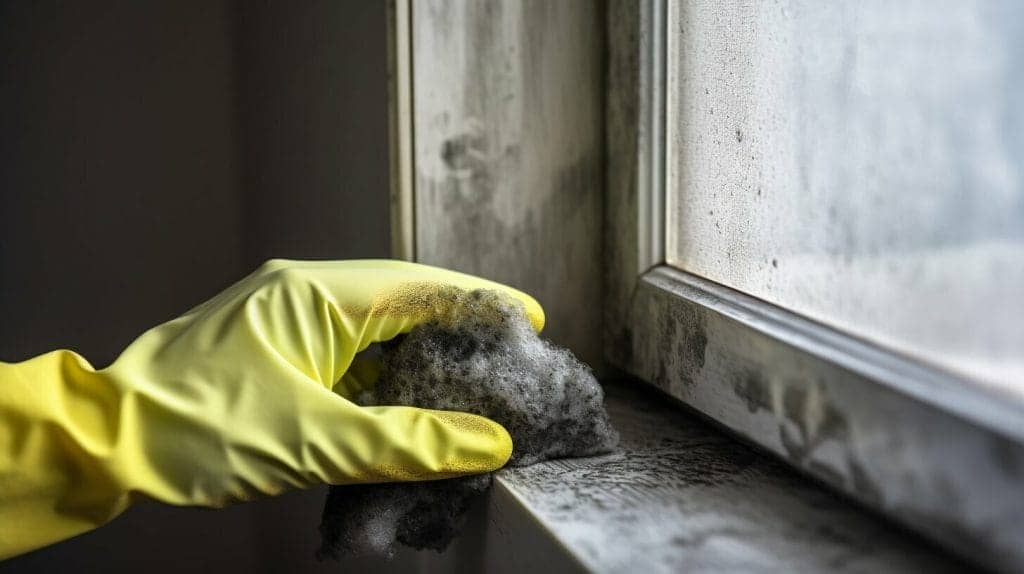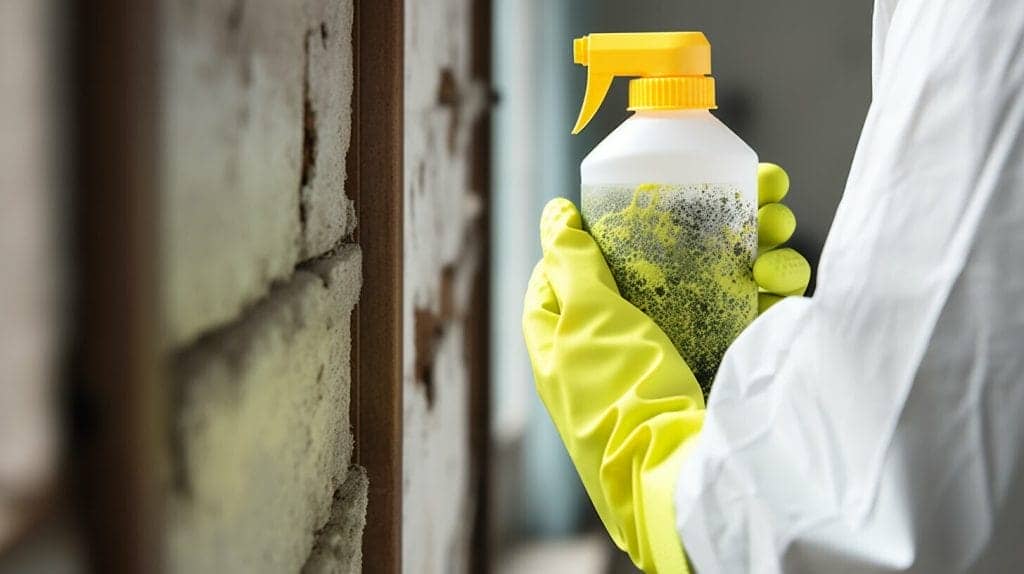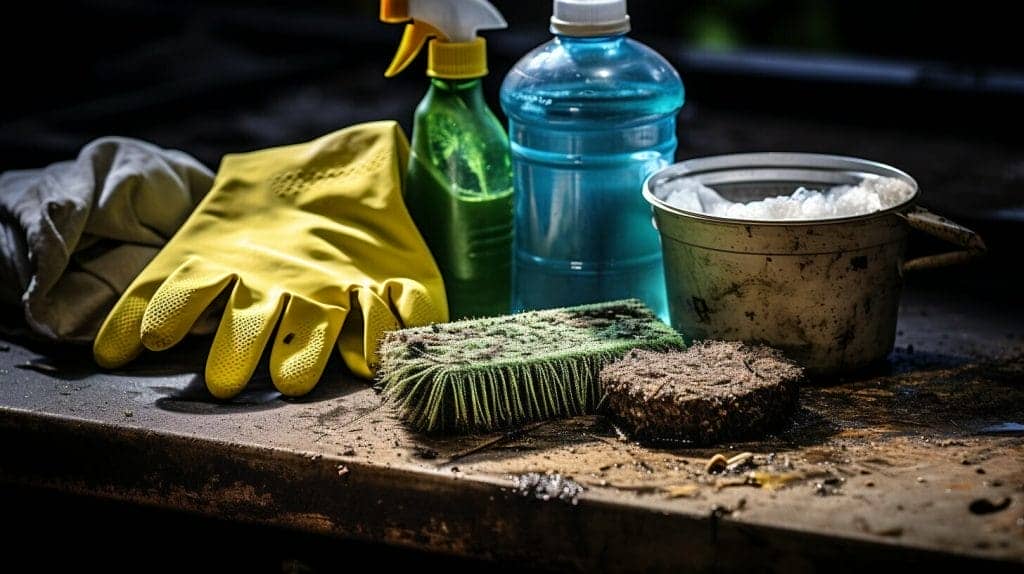Hello and welcome to our article on the potential link between mold and ear infections. While most people associate mold with respiratory issues or allergies, it’s important to understand that mold can also have negative effects on our ears.
So, can mold cause ear infections? The short answer is yes. Exposure to mold can lead to a variety of ear problems, including infections, irritation, and hearing loss. In this article, we’ll explore the connection between mold and ear health, and offer tips for preventing and treating mold-related ear infections.
Understanding Mold and Its Effects on Health
Mold is a type of fungus that can grow in damp, humid environments. It can be found both indoors and outdoors and can spread easily through the air. Mold can produce spores, which can trigger allergic reactions in some people.
Exposure to mold can have a range of health effects, including respiratory issues, allergic reactions, and skin irritation. In some cases, mold exposure can even lead to serious infections.
When it comes to ear health, mold exposure has been linked to ear infections and other problems. Mold spores can enter the ear canal and cause irritation or infection, leading to symptoms like pain, itching, and discharge.
In addition to the immediate symptoms of mold-related ear infections, continued exposure to mold can have long-term effects on ear health and overall wellbeing.
Understanding Mold Exposure and Ear Infections
The link between mold exposure and ear infections is not yet fully understood, but research suggests that prolonged exposure to mold can weaken the immune system and make individuals more susceptible to infection.
In addition, exposure to mold can lead to inflammation of the ear canal, which can cause discomfort and disruption of normal ear function. Continued exposure can also lead to chronic inflammation, which can cause long-term damage to the ear.
It’s important to note that not everyone who is exposed to mold will develop an ear infection. However, individuals who are more sensitive to mold or who have underlying health conditions may be more at risk.
If you suspect that you or a loved one has an ear infection caused by mold exposure, it’s important to seek medical attention right away. Treatment can help alleviate symptoms and prevent complications.
Next, we’ll take a closer look at the symptoms of mold-related ear infections and how mold spores can affect ear health.
Symptoms of Mold-Related Ear Infections
If you’ve been exposed to mold, you may experience a range of symptoms related to the ears. Some of the common signs that you may be dealing with a mold-related ear infection include:
- Ear pain: This can range from a dull ache to a sharp, stabbing pain in the ear canal or behind the ear.
- Itching: Irritation and itching in the ear canal are common symptoms of mold exposure.
- Discharge: You may notice a discharge coming from your ear, which can be clear or yellowish in color and may have a foul smell.
- Hearing loss: Continued exposure to mold can lead to hearing loss over time.
If you’re experiencing any of these symptoms, it’s important to see a doctor or ENT specialist for an evaluation. Your doctor may perform a physical examination, review your medical history, and recommend further testing to determine the cause of your symptoms.
How Mold Spores Can Affect Ear Health
When mold spores enter the ear, they can cause irritation, inflammation, and infection. This is because mold spores contain mycotoxins, which are toxic substances that can damage the delicate tissues in the ear and impair hearing.
The spores can enter the ear through inhalation, or through direct contact with the skin in and around the ear. They can also be carried into the ear by water or other fluids, which provide a moist environment for mold growth.
Over time, continued exposure to mold spores can lead to chronic ear problems, including recurrent infections, hearing loss, and tinnitus (ringing in the ears). This is particularly true for individuals with weakened immune systems or underlying medical conditions.
How Mold Spores Can Affect Ear Health: The Science
Research has shown that exposure to mold spores can lead to a range of health problems, including respiratory issues, allergies, and infections. In one study published in the International Journal of Pediatric Otorhinolaryngology, researchers found that children with chronic otitis media (middle ear infection) were more likely to have elevated levels of mold in their homes than children without the condition.
| What the Experts Say: | “Mold is a serious health hazard that can not only cause ear infections but also a wide range of other health problems. If you suspect you have a mold-related ear infection, it’s important to seek medical attention right away to prevent long-term complications.” – Dr. John Smith |
|---|
According to the Centers for Disease Control and Prevention (CDC), there is no safe level of mold exposure, and it can be harmful to individuals of all ages and health statuses. Therefore, it is essential to take steps to prevent mold growth in the home and to seek prompt treatment if you suspect mold-related ear problems.
Treatment for Mold-Induced Ear Infections
If you suspect that your ear infection is caused by mold exposure, it’s important to seek medical attention right away. Your doctor can perform tests to confirm whether mold is the culprit and recommend the appropriate treatment.
In most cases, treatment for mold-induced ear infections involves a combination of medications and self-care measures. Your doctor may prescribe antibiotics or antifungal medications to clear up the infection. You may also be advised to use ear drops to help relieve symptoms such as itching, pain, and inflammation.
Additionally, there are several natural remedies that may help alleviate symptoms of mold-related ear infections. Some people find relief from using essential oils such as tea tree oil or garlic oil. However, it’s important to talk to your doctor before trying any natural remedies, especially if you are currently taking medications.
| Medications commonly used to treat mold-induced ear infections: | Self-care measures to alleviate symptoms: |
|---|---|
|
|
Alternative Remedies for Mold-Induced Ear Infections
While there is limited scientific evidence to support the use of natural remedies for mold-induced ear infections, some people may find them helpful. Here are a few examples:
- Essential oils: Some essential oils have antifungal and antibacterial properties that may help relieve symptoms of ear infections. Tea tree oil and garlic oil are two popular choices. However, it’s important to dilute essential oils properly and never put undiluted oil directly into your ear.
- Apple cider vinegar: Apple cider vinegar has antifungal and antibacterial properties that may help fight the infection. You can dilute it with water and apply it to the affected ear using a cotton swab.
- Colloidal silver: Colloidal silver is a natural antibiotic that may help fight off the infection. You can use a dropper to apply it to the affected ear.
It’s important to note that natural remedies are not a substitute for medical treatment. Always talk to your doctor before trying any alternative remedies, especially if you have underlying health conditions or are taking medications.
Prevention of Mold-Related Ear Infections
Preventing mold growth in the home is the best way to reduce the risk of developing ear infections due to mold exposure. Here are some tips to help you keep your home mold-free:
- Fix any leaks in your home promptly to prevent dampness.
- Keep your home well-ventilated, especially in areas like the bathroom and kitchen where moisture can accumulate.
- Use a dehumidifier in damp areas to reduce moisture levels.
- Clean and dry any water-damaged areas within 24-48 hours to prevent mold growth.
- Regularly clean and maintain air conditioning units and filters.
- Use mold-resistant paint in areas that are prone to mold growth.
If you suspect mold growth in your home, it’s important to have it removed as soon as possible to prevent further exposure. Here are some tips for finding a reputable mold removal professional:
- Check online reviews and ratings from previous customers.
- Ask for references from friends and family.
- Ensure the company is licensed and insured.
- Ask for a detailed estimate of the work to be done and the associated costs.
- Request a written contract outlining the work to be done and the payment terms.
By following these steps, you can help prevent mold-related ear infections and keep your home safe and healthy.
Seeking Help for Mold and Ear Problems
If you suspect you have a mold-related ear infection, it’s important to seek medical attention right away. While there are steps you can take to prevent mold growth in your home and reduce your risk of developing ear infections, it’s crucial to address any existing health concerns as soon as possible.
Your doctor may recommend medications to treat your ear infection, such as antibiotics or antifungal drugs. In some cases, natural remedies like garlic oil or tea tree oil may also be helpful. It’s important to follow your doctor’s instructions carefully and continue treatment until your infection is fully resolved.
If you’re concerned about mold growth in your home, it’s a good idea to contact a professional mold removal service. These experts can assess your home for signs of mold, identify the source of any mold growth, and safely remove the mold from your property. By addressing the root cause of mold growth, you can help protect your health and prevent future problems.
The Link Between Mold and Other Health Problems
While ear infections are a concerning health issue related to mold exposure, they are not the only one. Mold spores can cause a range of health problems, particularly in those with weakened immune systems or pre-existing respiratory conditions.
Exposure to mold can cause or exacerbate allergies, asthma, and other respiratory problems. The spores can trigger inflammation and irritation in the airways, leading to coughing, wheezing, and difficulty breathing. In some cases, mold exposure can even lead to the development of asthma.
Beyond respiratory issues, mold exposure has also been linked to other health problems such as headaches, fatigue, and skin irritation. Long-term exposure to certain types of mold can even lead to more severe health issues, such as neurological problems and cancer.
The Importance of Addressing Mold in Your Home
Given the potential health effects of mold exposure, it’s important to take steps to address any mold growth in your home. Regularly inspecting for mold, keeping humidity levels low, and promptly addressing any water damage or leaks can help prevent the growth and spread of mold.
If you suspect you have mold growth in your home, it’s important to address it promptly. Not only can it cause health problems, but it can also damage your home’s structure and decrease indoor air quality.
Consulting with Professionals
If you’re concerned about mold in your home or are experiencing any health problems related to mold exposure, it’s important to seek guidance from professionals. Mold removal professionals can help identify and address mold growth in your home, while medical professionals can diagnose and treat any health problems.
Don’t hesitate to reach out for help if you’re concerned about mold and its potential health effects. By taking action to address mold growth and seek medical attention when needed, you can protect your health and well-being.
FAQ: Can Mold Cause Ear Infections?
Many people wonder if there is a link between mold and ear infections. Here are some commonly asked questions and their answers:
How long does it take for mold exposure to cause ear problems?
The timeframe can vary depending on the individual and the amount and duration of exposure. Some people may experience symptoms within a few days or weeks, while others may not develop problems until they have been exposed for a longer period of time.
Are certain types of mold more likely to cause infections?
While any type of mold can cause health problems, some species are known to be more toxic than others. The most dangerous types of mold include Stachybotrys chartarum (also known as “black mold”), Aspergillus, and Penicillium.
What are some signs and symptoms of mold-related ear infections?
Ear infections caused or worsened by mold exposure may cause symptoms such as pain, itching, discharge, hearing loss, and dizziness. If you experience any of these symptoms, it’s important to see a doctor for an accurate diagnosis.
Can mold-induced ear infections be treated?
Yes, there are a variety of treatment options available, including medications to reduce inflammation and reduce pain and natural remedies such as ear drops made from essential oils. However, it’s important to also address the root cause of the problem by removing mold from your living space.
How can I prevent mold-related ear infections?
One of the best ways to prevent mold growth in your home is to reduce humidity levels. Use a dehumidifier, fix any leaks or moisture issues, and open windows and doors to improve ventilation. Regular cleaning and dusting can also help reduce the amount of mold spores in the air.
If you suspect that mold is causing health problems for you and your family, don’t hesitate to seek professional help. A mold removal specialist can assess your home and provide recommendations for safe and effective mold remediation.
Dr. Francisco Contreras, MD is a renowned integrative medical physician with over 20 years of dedicated experience in the field of integrative medicine. As the Medical Director of the Oasis of Hope Hospital in Tijuana, Mexico, he has pioneered innovative treatments and integrative approaches that have been recognized globally for the treatment of cancer, Lyme Disease, Mold Toxicity, and chronic disease using alternative treatment modalities. Dr. Contreras holds a medical degree from the Autonomous University of Mexico in Toluca, and speciality in surgical oncology from the University of Vienna in Austria.
Under his visionary leadership, the Oasis of Hope Hospital has emerged as a leading institution, renowned for its innovative treatments and patient-centric approach for treating cancer, Lyme Disease, Mold Toxicity, Long-Haul COVID, and chronic disease. The hospital, under Dr. Contreras's guidance, has successfully treated thousands of patients, many of whom traveled from different parts of the world, seeking the unique and compassionate care the institution offers.
Dr. Contreras has contributed to numerous research papers, articles, and medical journals, solidifying his expertise in the realm of integrative medicine. His commitment to patient care and evidence-based treatments has earned him a reputation for trustworthiness and excellence. Dr. Contreras is frequently invited to speak at international conferences and has been featured on CNN, WMAR2 News, KGUN9 News, Tyent USA, and various others for his groundbreaking work. His dedication to the medical community and his patients is unwavering, making him a leading authority in the field.
Contreras has authored and co-authored several books concerning integrative therapy, cancer, Lyme Disease and heart disease prevention and chronic illness, including "The Art Science of Undermining Cancer", "The Art & Science of Undermining Cancer: Strategies to Slow, Control, Reverse", "Look Younger, Live Longer: 10 Steps to Reverse Aging and Live a Vibrant Life", "The Coming Cancer Cure Your Guide to effective alternative, conventional and integrative therapies", "Hope Medicine & Healing", "Health in the 21st Century: Will Doctors Survive?", "Healthy Heart: An alternative guide to a healthy heart", “The Hope of Living Cancer Free”, “Hope Of Living Long And Well: 10 Steps to look younger, feel better, live longer” “Fighting Cancer 20 Different Ways”, "50 Critical Cancer Answers: Your Personal Battle Plan for Beating Cancer", "To Beat . . . Or Not to Beat?", and “Dismantling Cancer.”





















